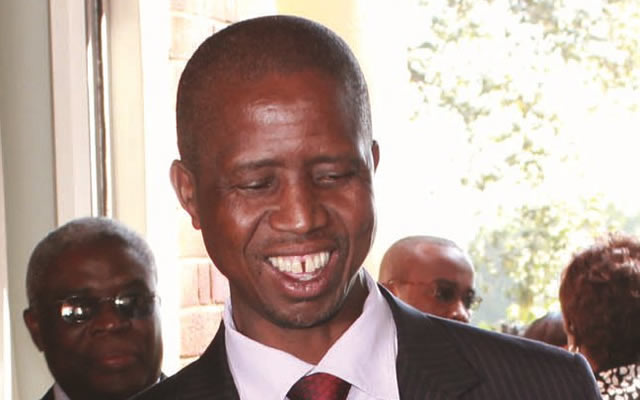Zambia succession battle spills into courts, mystery candidate emerges

BARELY had deceased Zambian president Michael Sata been buried Tuesday, than the gloves came off.
The battle had been simmering but the combatants took the ring in full zest after Zambia’s succession battle spilled to the courts, and the ruling party picked a candidate whom they are yet to reveal as its flag bearer in elections that will likely have impact on economic policy.
Supporters of Defence and Justice Minister Edgar Lungu, a frontrunner in the fight to succeed the late president Michael Sata, now claim that his right to take over as interim president had been unlawfully denied.
Court documents seen on Thursday showed former education minister Newton Nguni seeking a reversal of the decision by the cabinet and Attorney General to hand power to Vice President Guy Scott.
Nguni said the move was illegal and was carried out under threats, and wants Scott to surrender power to Lungu, who is also secretary general of the ruling Patriotic Front (PF).
Lungu had been left in charge of the country by ailing Sata when he flew out for medical treatment in Britain.
Nguni alleged that Scott and the cabinet had forced Lungu to relinquish power “threatening that if that didn’t happen … Lungu and other cabinet ministers would be charged with treason.”
The country’s constitution stipulates that the vice president should become acting president until elections are held within 90 days of the death of the incumbent leader.
“The cabinet meeting that purportedly resolved that the instruments of power be transferred to Dr Scott had no authority to discuss such transfer of power as there was no vacuum of power because the instruments of power were already being held by Mr Lungu,” said Nguni in the petition to the High Court. Lungu is at the centre of a post-Sata succession battle.
Scott, Africa’s first white head of state since apartheid, is due to guide the copper-rich southern African nation of 15 million people to elections on January 15.
Bigwigs of the governing party met on Thursday to pick a candidate to represent them in presidential elections. The name is yet to be announced, although there is speculation that Lungu might be the man, while a new round of wrangling has now opened up over whether the ruling party’s central committee or the general congress should pick their flag bearer.
Scott and Lungu belong to rival factions within the ruling party. As the country mourned Sata last week, Scott sacked Lungu from his party job as secretary general, sparking riots. He later reversed the decision.
The 70-year-old Scott is excluded from the race because of foreign parentage rules in Zambia’s 1996 constitution.
A full-blown battle had threatened to break out even as Sata lay in state, before politicians agreed to sheath their daggers out of respect for the fallen leader. During the handover, Lungu said he had given up power for the sake of peace and unity. He however came out fighting when he was relieved of his party post, terming the “purported” dismissal move by Scott “illegal and highly provocative under the party constitution”.
The two later signed a reconciliatory statement agreeing to retain the political status quo, but it would seem the waiting period in now over as the country plans an election.
In a eulogy at the burial of Sata this week, African Union chief Nkosazana Dlamini-Zuma called for a “smooth leadership transition.” It will be a call closely watched by investors, especially mining executives who had hoped for a positive response from Sata after they petitioned against the impending rise in taxes in the country’s 2015 budget.
The government’s intention however had popular support because of public perception that miners contribute less to the national purse than they should, even as it holds at least $600 million in Value Added Tax refunds to the industry.
However, analysts note that few politicians will be willing to “sully” Sata’s legacy — and their own given accusations that senior officials are often in the pay of some miners — by reversing course, even as miners themselves project reduced investment if implemented.
Zambia has diversified its economy little in recent years and relies heavily on mining for its foreign exchange revenue.
“A balance to ensure that populist policymaking does not outweigh the viability of the mining sector will need to be struck if economic damage is to be avoided,” the Economist Intelligence Unit said in a brief on the country this week. – AFP







Comments